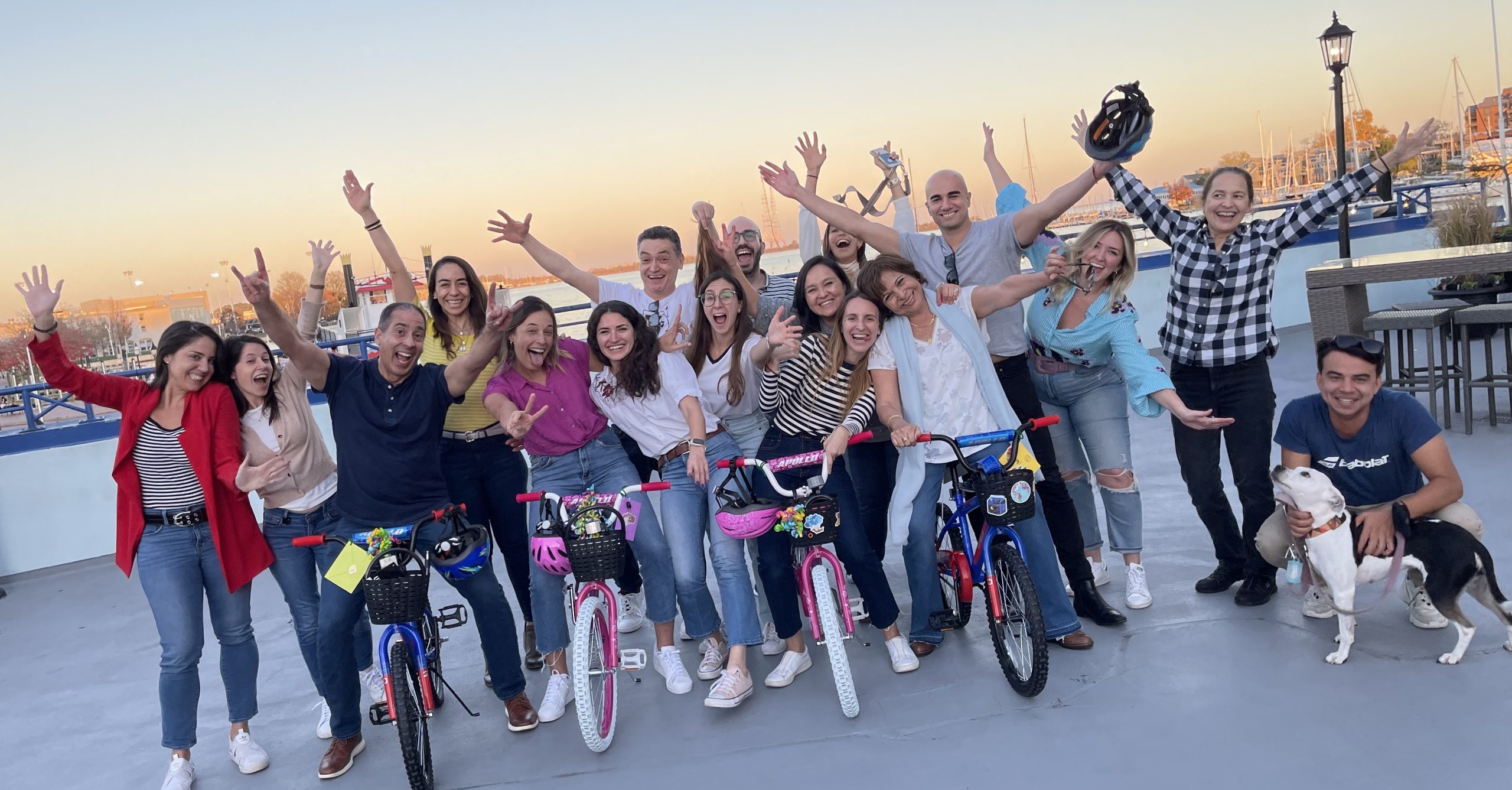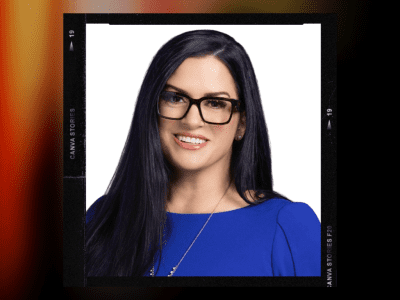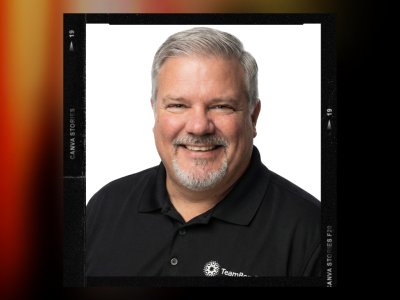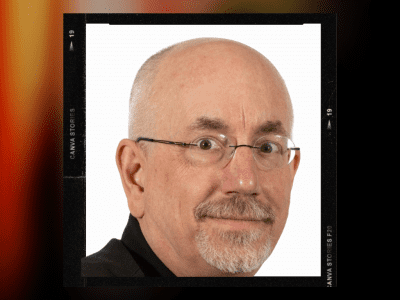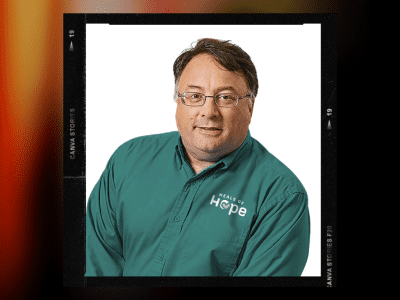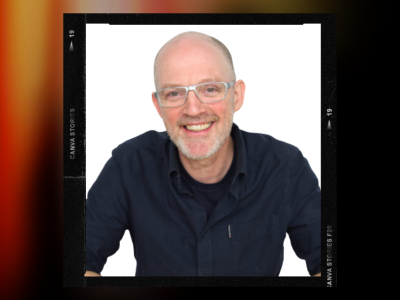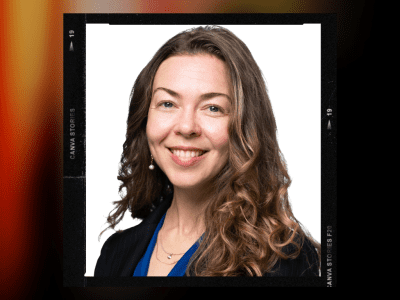STRONG TEAMS DON’T HAPPEN BY CHANCE 
The Power of Being Present
w/ Mitesh Kapadia

Use the buttons above to listen now.
Transcript - The Power of Being Present
Rich Rininsland: On this episode of Team Building Saves the World.
Mitesh Kapadia: Can you be the most present as well? Or you can be the most present, but do you have a plan?
If you’re striving for perfection, it’s more likely that you’re seeing something and your mind is completely focused on something that’s external. And because you don’t have to do the 80 hours, you don’t have to be in a position where you’re miserable.
You have influence, and most people don’t think they do. Everybody has to do that exploration for themselves and saying, “oh, what? What matters most to you?”
Rich Rininsland: Hello, team. It’s me. Your old friend, Rich Rininsland, host of Team Building Saves the World. And today, wherever you are listening, I want you to do something with me.
I want you to breathe in and out and again in and out. Because we’re gonna be talking about being present in both your life and corporate leadership with former engineer and Wall Street executive turned yoga teacher Mitesh Kapadia.
But first, I need to share some love with all of my supporters at TeamBonding. If your team is ready to experience teamwork through the Power of Play, visit TeamBonding.com to learn more.
Now, team, let’s be present as we talk about authentic leadership and heart-centered presence with Mitesh Kapadia.
Mitesh Kapadia, thank you so very much for coming on my friend. It’s so good to have you here.
Mitesh Kapadia: Thank you again, Rich. I appreciate being here. And you know, on a day where it’s just beautiful out, for me over here, in California where I’m based out of.
It’s just nice to, as I’m looking out in my window, to be here.
Rich Rininsland: We are heading into 4th of July weekend. It’s very hot on the East Coast. How is everything out on the West?
Mitesh Kapadia: Oh, we are up in the mountains here. And so it’s nice and good breeze. It’s perfect weather. You can be out. And even the water temperature, like when you step into the water, it’s like,
Rich Rininsland: oh man.
Mitesh Kapadia: Such a pleasant experience.
Rich Rininsland: This is the look of jealousy on my face and sweat on my forehead. ’cause it’s very warm rain right now. But let’s get started. Let’s talk about you. Nobody wants to hear about me anymore. Everybody already knows. But I want my team to learn more about you. So you started out in the world of engineering.
You were a finance officer, is that correct?
Mitesh Kapadia: Mm-hmm. Yeah. I was on Wall Street, I was working for Goldman Sachs and in the auditing department. Where, you know, auditing, I never knew this before I actually entered the department, is that there’s a IT auditing department there as well. And so you audit the technology, not just the financial books and all that kind of stuff.
So yeah, that’s where my career started out when I was living in the East Coast. Close to where you are. Yeah.
Rich Rininsland: But now you’re doing yoga and leadership counseling. So how does someone decide to make a pivot like that in their life? I mean, was there an actual, like a moment where you can remember “I need to do things differently”, or “I need something different in my life”?
Mitesh Kapadia: Yes. There was actually, and so just a little bit of backstory and not too long here, but before I started at Wall Street. I finished my engineering degree and my master’s degree. And I finished one semester earlier than I had expected. And so I had six months to kill. And really I was like, what do I do with this time?
And I mean, the options were very simple. Either stay at home and chill, you know. Start work early, make that request, or take some time to do something for me. And I ended up going to India and spending about six months there. Studying at a university, not necessarily going for any sort of like degree, but just learning about yoga, holistic health, and my own culture.
’cause I was born in India but never really got a chance to experience it. And so when I came back and started working and doing the things that people just were curious, like, “Hey, what is the thing that you learned that you went to India? Can you share some insight or teach?” And so I ended up just teaching on the side.
And I realized that, hey, this is more fun than what I’m doing right now. And so literally at some point, I got this inclination and I said, all right, I just gotta go and pursue this, otherwise I’m gonna regret it later on. And so overnight, I went from Goldman Sachs to Gold’s Gym and started teaching.
Rich Rininsland: That’s very, very good. But you have a very unique way of approaching your leadership training. Can you define that a little bit more for us? I gotta admit, when my team first connected us and was talking to me about having you on the pod, I loved learning about the different methodology that you have, that pretty much anybody I have interviewed thus far has ever actually brought to me.
Mitesh Kapadia: Yeah. And so for me, just because of my background, right. It’s like your life gives you the breadcrumbs and you just go with it, so you don’t stay hungry, you know? And, so I had this engineering background where it was more about processes and frameworks and, you know, having a plan, so to speak.
And then the yoga part of it, as I got into it, it was more about heart and presence and just being just being without even having to do anything.
Rich Rininsland: Okay.
Mitesh Kapadia: And at some point there was a point in my career where I said, it’s just not the yoga that’s interesting for me, there’s something more than just helping people with their physical challenges. It’s more of the emotional and mental things that they’re going through.
Rich Rininsland: Mm-hmm.
Mitesh Kapadia: And especially in the corporate world. And so. I was like, how can I combine the best of both worlds? And that’s where the training, the coaching, even the team building came through is that, you know, you have to have the structure, but you also have to have the presence and the heart to combine and bring into that.
And. I feel like that’s what leadership is about is, yes, you can be the smartest person, but can you be the most present as well? Or you can be the most present, but do you have a plan of where to go next? And so bringing both of these two together is where really my work kind of has come through at this point.
Rich Rininsland: And how do you handle a culture, especially at the time you were saying you were coming into it, which was all about the first one to the finish line being the loudest, the best and the brightest to being so to teaching people that they can sit back and, just be themselves and still succeed?
Mitesh Kapadia: Yeah. Well, I think people recognize it that, you know, when you’re chasing something
Rich Rininsland: mm-hmm.
Mitesh Kapadia: You can get there first. But where’s the fulfillment after that? You’re like, okay, what’s next? What’s next? What’s next? What’s next? Right, right. And then there, there is that short term fulfillment, but that longer term satisfaction is gone.
And, so for me, convincing people and just talking to people and saying that, okay, sure you can get there. But what is it that’s really fulfilling? And, you know, how do you want to be seen as an individual within your company? How do you want to be perceived? How do you want to create influence?
Is it by cracking the whip or do you want people to actually respect you and, you know, do things because they want to do things for you rather than just like a kid who’s told to do something and, you know, when they’re in their school and they’re just like, “all right, I gotta do it otherwise I get punished”.
And that’s not really the way that people operate or that they like to operate. And so for me, that was really the approach of, you know, you can do this a different way.
Rich Rininsland: And what kind of successes have you been seeing with this? I mean, that’s a very broad question of course, and I don’t want you to name names, but can you gimme an example of someone who went from the Type A always driving forward, pushing their team ahead to figuring out that they can settle back and let things happen with them and for them as opposed to forcing them?
Mitesh Kapadia: Yeah, I mean there’ve been many individuals and one that comes to mind right now is this one individual I was working with, he was putting almost 80 hours a week in his job.
Rich Rininsland: There are many people out there, I’m sure right now going “Yes, ’cause that’s what you do.”
Mitesh Kapadia: Yeah, exactly. And you think that’s the way to go. And you know, there’s nothing, you know, not one way is right or another, but there’s consequences when you make different choices. And so when he was doing this. You know, he had four kids and he was putting them not as the top priority for him, which is, you know, everybody’s making their choices.
So I said, so we just look at the choices and say, okay, well you’re doing this and this is not what’s being given attention. So what do you want to choose? And once again, that’s, it’s the choosing versus the chasing something.
Rich Rininsland: Right.
Mitesh Kapadia: And, you know, when we put it in that perspective, it was like, oh yeah, there is something that I feel like I need to do or I want to do.
And so it was then at that point, setting boundaries. It was about, you know, it started out small of, okay, let’s just set some boundaries around the time that you’re spending. And then secondly, there was a day like, okay, a Tuesday, every Tuesday at five o’clock, I’m gonna shut my laptop off and not do anything.
And making that commitment to himself. And so it started out that way and then he realized, oh, I’m actually getting more done in the less time that I’m doing. And it’s because you are more present. You become more focused and you don’t feel like you have to just put in that FaceTime in order to have that career growth for yourself and that’s really the key.
Rich Rininsland: That’s amazing. And what about those people who feel like they can have it all? You know, those people that are like, I want the me time. I can be the best parent, I can be the best partner. I can also do the best work. The ones who are aiming for perfection in everything that they do. First off, what kind of traps are they setting for themselves along the way, and how is that affecting the people around them?
Mitesh Kapadia: Yeah. The word that you use perfection is the key. I feel like we do live in a culture where you try to be perfect, right? And perfection oftentimes is not even a standard that we set for ourselves, but it’s something that.
We look at others and say, “oh, that person’s doing this”, or, you know, as I was growing up, I saw my, you know, there’s that competition that kind of comes through like, oh, that person’s doing this, or This person’s doing this.
So I need to do this as well. And that competitiveness. Yes, it’s a driver. It certainly can move you into a direction, but like I said, when you choose something, there’s also consequences of doing that. And when you’re perfect and trying to achieve a perfection. You’re very much in your head, you know, you’re not present as much.
Rich Rininsland: Yeah.
Mitesh Kapadia: And that’s the distinction I try to bring to people is that if you’re striving for perfection, it’s more likely that you’re seeing something and your mind is completely focused on something that’s external.
And when you come back to presence, which is what I like to show the options for people, is that when you come back to presence, there’s something else that you can. And, and still be perfect in that presence.
Rich Rininsland: Okay. And what kind of benefits could they expect to find? Because you, I know that there’s gotta be some people listening out there right now who are thinking, okay, it sounds great, but I’m succeeding now.
I’m climbing the corporate ladder. My family still says they’re okay. Even though I only see them on weekends or at dinner, or, just after dinner time or whatever it happens to be. I’m flashing back on my own childhood where my father left at 6:00 AM we weren’t even up yet and he didn’t come back home till 6:00 PM and then after dinner it was, “okay, you kids go do your homework. I don’t wanna talk to you for the rest of the night. I need to relax.”
So how can we convince those people that it’s worth taking a step back? What kind of things can they experience that are going to tell them they’re going in the right direction by taking a second.
Mitesh Kapadia: Right. And that’s a perfect example that you brought up, and it’s the idea of, you know, when you plant a seed, you don’t see the value of it right now, but later on you’ll see the result of it. And you know, if you’re using garbage components, so to speak, you’re gonna get garbage results.
Rich Rininsland: There’s that engineer coming out.
Mitesh Kapadia: Yeah. And for people, you know, we’re so caught up in this short term wins and we define that as success.
Okay. Yeah. I’m doing this right now, but later on. What’s going to be the result of it? And you know, for many, myself included, you know, I had similar parents who were working parents and they, you know, not nothing against them, but like, and so it’s really about the long game where, you know, if you plan something and you use ingredients that are not quality things, you’ll get a result that shows up that it’s not high quality.
And so similarly, that’s the whole thing about what choices are you making now. And you know, if you’re looking for presence, then you know that that time that you spent and the connections that you make with people are going to show up. Maybe not in this moment, but it’s going to show up later on.
And, and so for people, even if you’re in a leadership position, if you’re a C-level person, it gets quite lonely at the top for a lot of people, and for people it’s making those connections, being present with folks because the work is going to never stop.
Rich Rininsland: Right.
Mitesh Kapadia: But can you allow yourself to do the work in a way that is fulfilling, that you feel like you’re there and not somewhere else, and you’re creating the results that are, down the line, going to be something that’s meaningful to you, meaningful for you, versus disappointing. And, for folks, it’s like, yes, we get so caught up in the short term game of like, this is what I’m gonna do and, I’m doing great right now, and we’ll sacrifice it for later.
Rich Rininsland: Yeah. Yeah.
Mitesh Kapadia: But you know, that’s the thing is if you take a moment to just ask yourself like, what are your values? What do you, what do you really prioritize right now and what’s meaningful for you, then you can make those choices that can lead you in the direction because you don’t have to do the 80 hours.
You don’t have to be in a position where you’re miserable.
Rich Rininsland: Excellent.
Mitesh Kapadia: And for a lot of people, that’s surprising because it’s like, well, I thought I had to sacrifice myself or I had to do things that are not enjoyable. Just so I can rise within my organization and, yes, that is one way. And if you choose to take that path, that’s great, but there are other choices that you can make where it could be more fulfilling in the direction that you go in.
Rich Rininsland: If you don’t mind, I’d love to share a story at this point myself. My father, when he finally retired, he bought himself a million dollar house on the shores of New Jersey.
You know, the resort community he always wanted to live in when he was growing up. Once he would drive us through when we were kids to be like, one day dad’s gonna live here, and we’re all like, great. But he was 65. And I said to him, I was like, dad, you should be really proud. This is everything you wanted for yourself and you made it happen.
And he looked right at me and he goes, “you may not remember this, but when you were a kid, I offered you a job”. And I was like, I remember that. And he goes, “and you turned me down flat. Do you remember why?” And I was like, “yeah. I said, you come home miserable every night. Why would I wanna do that to myself?”
And he looked at me and he goes, “I gotta tell you, kid, you were right. Yes, I have what I thought I always wanted right now, but I was never happy. I would rather have the 40 some years of happiness than this house.” And I was like, first off, I was amazed that he could actually take that second to admit that vulnerability to me, which you could never do when we were young, my brother and sisters and I.
But yeah, so that’s that thing that you are missing is called your life.
Mitesh Kapadia: Totally and such a beautiful moment that you got to share with your dad.
Rich Rininsland: It was around. It was, unfortunately, one of the last that we got to share, unfortunately. But I’m glad we had it.
I’m so glad we got to have that moment myself.
Mitesh Kapadia: Yeah, because that’s the, you know, you can break the cycle. Right? And you decided to break that cycle because you. For many, they continue to perpetuate. Oh, because you know, so-and-so did it and so-and-so did it. I have to do it this way as well.
And you decided to break the cycle, which is great, and you chose your own path.
Rich Rininsland: But let’s talk about the ripples that come about from making that choice. What about the people you work with? If you are a member of the C-suite or even middle management, how does it affect the people around you that when you start having this… realize, the self-actualized way of living.
Mitesh Kapadia: Hmm. Well, you show up more human. I think that’s the simple answer is that you don’t see things in a transactional way where, okay, I’m here, you’re here. You need to do this, I need to do this, and, you know, move on with it. And it works for certain situations, like when there’s a common goal that you’re working towards.
Transactional can be fine in those situations, but when there is a bigger purpose that you see for yourself, and say, “Hey, I see you.” ‘Cause people don’t want to work for folks that don’t really see them. But when you can see individuals, when you can see people, they’ll go to bat for you at any given point.
They’ll say, you know what, I really love this. And that’s what the conversations that I have with clients is that. They share that, you know, there’s this one manager I remember.
And the reason why they remember that manager or that person that that stood out for them is because they actually felt seen by that person.
And they said, you know, I would work for that manager in a heartbeat. You know, if I, you know, for whatever reason it they moved on or something happened. But people remember that. And there are others that, you know, you don’t wanna be that manager that just made people miserable because.
Rich Rininsland: Every guest I’ve had has said the exact same thing.
The reason people quit, the reason they leave what could still be a very successful company is because of management. If anything, you’re gonna get them to stay a little longer.
Mitesh Kapadia: Yeah, exactly. And think about what it does, like you said, what it does for the people around you, the morale around you, the tone that you’re setting for people.
You have influence, you know, even in middle management, I mean, I feel like it’s the hardest role to be in ’cause you have to manage up and manage down.
Rich Rininsland: Right.
Mitesh Kapadia: But it, it’s, you have influence and most people don’t think they do in that way. So when you come back to what is important for you and, like I said, just be present with the things that are around you, that influence is almost like it builds to a greater extent. A lot more people feel it. And a lot more people experience that, “hey, this person is, is truly somebody I like to work with”.
Rich Rininsland: Plus hopefully it’ll be teaching through example. Because you’re gonna move on eventually if everything’s successful.
And that means somebody you have been training gets to move up to the place and hopefully do the same thing you did.
Mitesh Kapadia: Yeah. And I remember a manager that I had, loved him because we had the smallest team within the organization and, you know, our team would always kind of be ignored or, you know, kind of seen as like, all right, it’s just like you guys over there.
And he would, you know, make us visible. He would allow us to give those opportunities and even when things were not pleasant, he would shield the team from that. And I recognize that. Wow. You know. He didn’t have to do all that, but he did it because he cared and he saw the impact of how, you know, for us to be visible, what that can do for us.
Rich Rininsland: How then do we make sure we don’t say backslide? And I know that, I mean, I’ve been a Zen practitioner since I was in my twenties. So it is very easy to just have bad days. Where I can’t quiet my mind, I can’t get outta my own way. I imagine when you’re in the corporate world, things like, you know, always wanted to be the one that seems to have the answer, or here I am, I have been living this way, I have been doing my best to make sure that I’m in the moment, that I’m here for the people that are under me and the people who are above me.
I’m doing everything that I think I’m doing correctly, but I’m still not getting anywhere. You know, I have stalled. So how do we keep these people grounded and in the moment, but still allow them to have goals to achieve for?
Mitesh Kapadia: Yeah. And this is human life. We, we have the ups and downs, and I think what’s most important for people is recognizing that don’t fight it.
Don’t resist the failures in a way that it puts you in a spiral of shame or guilt or these emotions that will tear you apart. That or that inner critic that will, will come across. And, and that’s what I tell folks, like, you know, if something is happening, I’m sure it’s happening because it’s trying to teach you something or show you something better.
And you know, if, if, for example, there was this individual who’s so caught up on to-do lists that I was working and for whatever reason, they just had to get their to-do list done. And so I asked them like, what is it that is important for you? You know, what is it that do you see it as a failure when you don’t make it?
And he said, yeah, yeah. You know, if I don’t get this to-do list done, or if I don’t get this, these things done that I have on my list, then I’m going to feel like I failed.
Rich Rininsland: Mm.
Mitesh Kapadia: And so I then I asked him like, so why do you think it’s, it’s there in the first place? Why, why is this list there?
Rich Rininsland: Right?
Mitesh Kapadia: And so he found out, you know, just through that exploration that, you know, as somebody who was always expected to do good and to do great. And, you know, in a culture where a 98% wasn’t good enough, there was that pressure to constantly always be on. And so for somebody in that way, if it’s a failure, you know, what he learned from it in this example is that he burned his to-do list and said that, all right, I’m going to do the things that are meaningful.
One, because it’s fulfilling. And then secondly, when you’re in that energy of excitement and doing things because you feel inspired and compelled to do something.
Time stops in, in so many ways.
Consider it this way, if you were to take two paths, you know? The quick path where it was just painful. Like, you know, going up a mountain if you, you know, I live in the mountains here and if you go straight up, it’s the most painful way to get up to the top. But you get there in the shortest distance.
However, there’s a reason why there’s so many, like these switchback that you sometimes see on mountain roads is because they go back and forth, back and forth. It’s a longer distance, but it’s a much more easier and much more scenic route to get there. And that’s the idea, is that don’t see that one way of doing things or that one failure as a way that really is an obstacle, but see it as an opportunity to see what are my other choices? What are my other paths that I can create from this opportunity here?
Rich Rininsland: This sounds amazing and it sounds like it’s an excellent exploration especially for people who don’t know how to take care of themselves, but what about taking care of others as well?
Because that manager needs to make sure that the people under them feel trusted, feel seen, like you had said, and still have what they need to be able to take care of themselves as much as you are. How can we, I guess what I’m trying to say is what’s the best balance? Is it better to make sure you’re still taking care of yourself over others?
Or is there a way to basically make sure that everybody is working together to be whole?
Mitesh Kapadia: Yeah. And these are situations where it’s more in the moment of like, a lot of things can come up. So one is that, you know. Are you taking responsibility for other people’s happiness? That’s one whole different idea.
And the other thing is around agreements. You know, what are the agreements that you make with people, whether you know, the ones reporting to you and the ones that you report to. And so there’s a play of a lot of different factors where there’s boundaries, there’s agreements, there’s responsibility, there’s, you know, what are the things that you are doing unconsciously. And so, you know, case, an example is that if you’re doing something because you’re people pleasing, yes, you might get the result that you want in doing so, but are you gaining the respect with that result that you’re getting? Right. And so for people, there’s no one right way. That’s the, that’s the thing. Is that individually, what, what’s working for you? What can you find fulfilling for yourself and making the choices that you do, and when you’re in that place, then it’s like a, you know, when you see somebody doing even, let’s say.
I remember like a barista at a, at a coffee shop, they’re just enjoying what they’re doing. You know, they’re not managing anybody or they’re not leading anybody, but they’re just enjoying what they’re doing. And as a customer, you feel great, like you want to be served by this person.
And because they’re doing with the things that they’re truly enjoying. And so stepping away from doing things because it’s always been done this way doing things because the culture expects it this way.
And doing things because you define the culture and you start creating the path that works for you.
And so there, like to answer that question in a short way is that there is no one right answer, but everybody has to do that exploration for themselves and saying, what matters most to you?
Rich Rininsland: Nice.
Mitesh Kapadia: And are you sacrificing yourself for success? And if that’s fine with you, great. If it’s not, then what are you going to do about it? And to make that choice for yourself.
Rich Rininsland: Okay? Now I gotta ask Mitesh, because this has been coming up a lot more recently in the podcast with other guests. How does this help with empathy? Because a lot of what I am hearing from past guests that we’ve had is managers seem to have lost that connection to other people.
That empathic, I know what you’re going through, or I can at least sympathize with what you’re going through. You know when somebody under you is not producing, instead of just immediately going, you’re not producing. Get your bleep in gear and let’s get going to, okay, what’s going on with you that you’re not producing?
So how does this methodology help them in that kind of connection with another human being?
Mitesh Kapadia: Yeah. So it’s the same thing, right? Of you know, what you sow is what you reap, right? And so when you’re sowing in this opportunity to see somebody and to recognize and have that five minute conversation or maybe 10 minute conversation with somebody and not judging them and saying, “Hey, why are you so this?” But “hey, I’m noticing that the work seems to be very heavy for you these days. What’s going on?” You know? And. See what they say, see what they respond with. And sometimes the shields may be up, and, just lead with curiosity. So that’s one of the principles I like to have people look through is that just be curious.
Don’t assume that you know what the answer is, and keep asking those questions. Dig two to three layers deep of why, well, why is this, you know, why is the the work feeling heavy? And they might say, well, it’s feeling heavy because i’m just not feeling my best. Tell me why, what’s not allowing you to feel too good?
And they may eventually you get to the answer of what’s really at the core of this person’s challenge. And then when you’re able to get there, and just by touching it and not even trying to solve it a lot of it gets released because they feel seen. They feel like they have the space to share and you automatically see them and they feel respect with you as well.
So it’s that mutual respect that that gets given and it honestly can happen in a 10 minute conversation.
Rich Rininsland: Fantastic.
Mitesh Kapadia: And nothing more than that.
Rich Rininsland: Good. We’re just at the point where we’re gonna wrap up, but before we do, and I do not want you to give away the story here, people are gonna need to reach out to you to get a full, more clear understanding for them personally as to what this can look like.
But how do we help a listener begin tomorrow? If they’re listening to this on the car ride home today, how can we allow them, what skill can we teach them right now to give a even just a second of presence in their day?
Mitesh Kapadia: Yeah, the one thing that you can do immediately is to take a breath, just breathe in and just feel that experience of it and take another breath and take another breath and just notice what are your thoughts that are going on.
If you can get to a place of just recognizing that the chain, and kind of just breaking the chain of thoughts that we’re circling all the time. A breath is a great way to break those chain of thoughts.
And that’s one of the things that start out with first, like if you find that you’re so overwhelmed and you’re facing burnout and you’re facing all these like mental stress, the reason why people ask to breathe is that it helps to just physically break that cycle of thoughts.
Yeah. And start there. And then choose. Remember, instead of trying to be overwhelmed with something, choose what is the thought that I’d want to have? What is the thing I want to focus on now? And this gives you a bit of a reset to do that.
Rich Rininsland: Nice. Excellent. Thank you very much. Mitesh Kapadia.
Everybody give him a big round of applause. Thank you so much, Mitesh.
Is there a way if my team wanted to learn more about you or this methodology like that you can recommend for them to go.
Mitesh Kapadia: Feel free to connect with me on LinkedIn or, you know, find, my website is leadwithconsciousness.com that’s where I reside. And mostly, you know, just sharing wisdom and, and so on LinkedIn is a really good way because every day I’m posting pretty much and just sharing different nuggets, insights around what I’m noticing, what I’m seeing, client examples.
And it’s a great way to also connect. So if you find me through this podcast feel, hey, we found you through the podcast and this is a great way to just know how you found it.
Rich Rininsland: Wonderful. Thank you very much. And I gotta tell you, I loved this. I thought this was a fantastic conversation.
It is so rare I get my own inner Zen brought back up to me. So thank you very much my friend. This was wonderful.
Mitesh Kapadia: And just loving presence and energy too, Rich. You’re quite real. And that’s what makes this conversation awesome. And as I’ve just gotten to know you for a little bit here, I can just see the level of care that you take for the work that you do, and making it so comfortable for all of us that whoever comes onto this episode of this podcast to just make it a great experience. So thank you.
Rich Rininsland: That means the world. Thank you very, very much. I do try that. Thank you. I hope you continue to feel that way though. ’cause you might have forgotten. I told you. It is time for my speed round.
Mitesh Kapadia: All right, well, I spoke too soon.
Rich Rininsland: Just to remind you and everybody out there what’s gonna happen is for 60 seconds, I’m gonna play some music. While I do, I’m gonna ask you just a series of rather silly, innocuous questions. Very simple questions if you are feeling at all competitive, because this is a game we have gone up to 17 questions asked and answered in 60 seconds.
So if you’re feeling up to it, great. Don’t feel like you have to push.
Mitesh Kapadia: This is where I take a breath to just focus on my goals for a second. Getting that number 18.
Rich Rininsland: Alright. Alright. All right. Let’s see if we can do it together. That’s the important thing is we’re gonna get there together.
Whenever you hear the music, I’m gonna ask the first question. Away we go. What’s your name?
Mitesh Kapadia: Mitesh.
Rich Rininsland: How many children do you have?
Mitesh Kapadia: Two.
Rich Rininsland: Which one’s your favorite?
Mitesh Kapadia: Both.
Rich Rininsland: Nice. What’s your favorite go-to vacation spot?
Mitesh Kapadia: Hawaii.
Rich Rininsland: Biggest inspiration and why?
Mitesh Kapadia: My yoga teacher. Because he shows simplicity in action.
Rich Rininsland: Favorite TV series of all time?
Mitesh Kapadia: 24
Rich Rininsland: Favorite guilty pleasure TV series.
Mitesh Kapadia: It’s an Indian TV show called Panchayat.
Rich Rininsland: Nice! Favorite way to stay creative?
Mitesh Kapadia: Be in nature.
Rich Rininsland: Pancakes or waffles?
Mitesh Kapadia: Pancakes.
Rich Rininsland: Do you have a favorite go-to karaoke song?
Mitesh Kapadia: No I don’t do karaoke.
Rich Rininsland: That’s okay. First job you ever had?
Mitesh Kapadia: Working at a pharmacy dispensing pills.
Rich Rininsland: Wow. Something on your bucket list.
Mitesh Kapadia: Wow. Oh man, that was a tough one. Being able to connect with animals.
Rich Rininsland: Excellent, okay. 13 buddy. You got 13.
Mitesh Kapadia: All right, well, that’s…
Rich Rininsland: No, it’s great. It’s great. I mean, I even fumbled myself there for a second, but it does happen. Remember, the whole point is you gotta forgive yourself and just let it go.
Mitesh Kapadia: Yeah. It’s, it’s about the experience knowing that, hey, this was good. Allowing me to check in on things that I’ve been putting off.
Rich Rininsland: Excellent. Thank you so much, Mitesh.
Mitesh Kapadia: Thank you again, Rich, and really a pleasure to be here and truly enjoyed the conversation.
Rich Rininsland: Thank you.
August 26, 2025
In this powerful episode, Mitesh Kapadia shares his journey from Wall Street to wellness, offering a fresh perspective on being present in both leadership and life. He explains how shifting from constant striving to learning how to be in the present can lead to deeper fulfillment, stronger connections, and even greater productivity. Through real stories and practical insights, Mitesh shows what it means to be present in the workplace and how leaders can inspire others simply by choosing to be in the present themselves.
About Mitesh Kapadia:
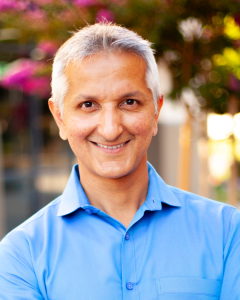 Mitesh Kapadia is an executive coach and former engineer who helps thoughtful leaders grow their clarity, confidence, and impact. He works with Directors and VPs to strengthen visibility, influence, and presence as they rise to the next level. Through Lead with Consciousness, he supports individuals and organizations in building conscious, effective leadership from the inside out.
Mitesh Kapadia is an executive coach and former engineer who helps thoughtful leaders grow their clarity, confidence, and impact. He works with Directors and VPs to strengthen visibility, influence, and presence as they rise to the next level. Through Lead with Consciousness, he supports individuals and organizations in building conscious, effective leadership from the inside out.
You can be the smartest person in the room, but can you also be the most present?
Mitesh Kapadia
More great podcast episodes.
Season 7 | Episode 1
The L&D Approach That Actually Works
Season 6 | Episode 18
That’s a Wrap!
Season 6 | Episode 17
Work-Life Integration
Season 6 | Episode 16
Laughing it Off
Season 6 | Episode 15
Corporate Volunteerism in Action
Season 6 | Episode 14
Collaborative Play at Work
Season 6 | Episode 13
The Science of Supportive Workplaces
Season 6 | Episode 11
The Age Advantage
